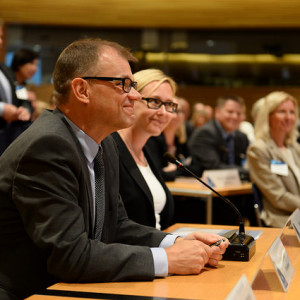False Economies and ‘Kamikaze Accounting’: the legal cuts that cost us more
We’ve all been there. That cheap bike lock which lost you the expensive bicycle; shoddy shoes that you have to buy four times as often. Hey, we’re young and poor, and more importantly, we don’t have the welfare of 60 million citizens in our hands.
But that hasn’t stopped Cameron’s government from embarking on a neoliberal agenda of privatisation and cuts to vital public services, making the poor, the disabled and the young bail out the corruption and errors the bankers.
Whether it’s due to political short-sightedness, incompetent ministers, an ideological need to curb the state, or a concoction of all three, the last 5 years have seen cuts deeper even than under Margaret Thatcher but the truth is that many cuts don’t save money in the long run, but punish the most vulnerable members of our society and hit the taxpayer hard in the pocket in a lose-lose situation.
A perfect example of a false economy is Legal Aid cuts of £450 million pa by a Ministry of Justice forced to cut £2 billion pa from 2014-2015. This reform removed significant categories of law from the scope of legal aid, and from High Court judges to magistrates, has been widely condemned. January 6th 2014 saw an unprecedented mass walkout by barristers and solicitors protesting about the potential miscarriages of justice, lower quality legal representation and criminals walking free. Not only do the cuts make a mockery of equality of access to justice, the bedrock of democracy, they are also economically ungrounded. Why?
A King’s College London study concluded that the knock-on costs of cutting legal aid could be around £139 million pa, meaning a saving of just 42% of what the government predicted. Moreover, this is likely to be a substantial underestimate. Even the government’s own impact assessment indicated the reform lead to reduced social cohesion, increased criminality, reduced business and economic efficiency, increased costs to, and transfers between, other Departments. With every £1 saved by the MoJ removing clinical negligence from the scope of legal aid, the NHS could be liable for up to £3 – a predicted £28 million a year. Author of the report Dr. Cookson said: ‘This research undermines the Government’s economic rationale for changing the scope of legal aid by casting doubt on its claim of realising savings to the public purse.’
Desmond Hudson, CEO of the Law Society, said: ‘This is kamikaze accounting and will little to tackle to deficit while sacrificing access to justice’. Legal aid cuts have led to 46% of the people seen in private family courts now representing themselves. Nearly half of seeking access to their children through the courts have to do so without legal advice. The number of self-represented parties in child-related cases rose by 40% in a year with 97% of magistrates who saw a person representing themselves saying it had a negative impact on the court’s work, and 62% of magistrates saying litigants in person had a negative impact on the court’s work most or all of the time. We are now ten times more likely to see two parents fighting for residence/contact without legal representation than with.
This has created an ‘impossible two-tier system’ between the haves and have-nots of legal representation. As well as the predictable consequence that ‘Justice is limited to those who can afford it’ and ‘risks injustice for children’, as expressed by magistrates interviewed in this survey, it is extremely expensive, wasting huge amounts of court time and undermining the effectiveness of court operations. Bill Waddington, chair of the Criminal Law Solicitors’ Association, said: “People are representing themselves, so cases that should take an hour take a day”. Nicholas Lavender QC, chairman of the Bar Council, said the cuts would drive people out of criminal advocacy and lead to a dearth of people sufficiently skilled to do the most difficult and complex cases which will, paradoxically, increase costs to the criminal justice system because less efficient trials cost more. He explained: “Trials will take longer, there will be more appeals and more cases in which the wrong results are reached: the innocent convicted and the guilty freed. It’s a very real threat to the quality of justice in this country” adding that the cuts were a false economy both “because of their effect of criminal justice and because they damage our reputation as a centre of legal excellence.”
A report by the Family Court Unions Parliamentary Group on the ‘overwhelming’ costs of the cuts to society estimates that 68,000 children a year will be affected by changes to private family law such as the closing of Child Contact Centres across the UK. Thousands of children will as a result lose access to a parent, for example, and increased court disputes between parents will create more distress for the children.
More common false economies include failing to provide in-home care, meaning expensive hospital beds being taken up and cutting prisoner rehabilitation and education programmes. These provide services from educational and vocational skills to psychological rehabilitation, better equipping prisoners for a crime-free life. The success of these programmes is astounding. An intensive re-educational program with violent male offenders in San Francisco jails reduced the level of violence in the jail to zero for a year, and reduced the frequency of violent re-offending by 83%. It saved the taxpayer $4 for every $1 spent on it. For every 100 individuals, the UK’s Rehabilitation for Addicted Prisoners Trust programme (RAPt) saves £6.3 million on re-sentencing and re-incarcerating, yet it is currently only offered to fewer than 3% of prisoners with a drug problem. With the annual cost of each prisoner exceeding £40,000, this is an investment worth investigating.
Any responsible government heeds legal experts and conducts scrupulous social impact assessments before introducing such far-reaching cuts, particularly to representation to justice.
Spending on people and wellbeing leads to happier healthier societies and is economically responsible. We should look carefully at what works for the common good – social and economic – and make the right decisions for the future.




This is great Jules. One thing worth pointing out is the fact that the whole process has been accompanied by an attempt to entrench an ideology of small-state, low tax, self-interestedness, ‘self-reliance’ – in order to avoid them from later being responsible for mopping up the mess created by false economies